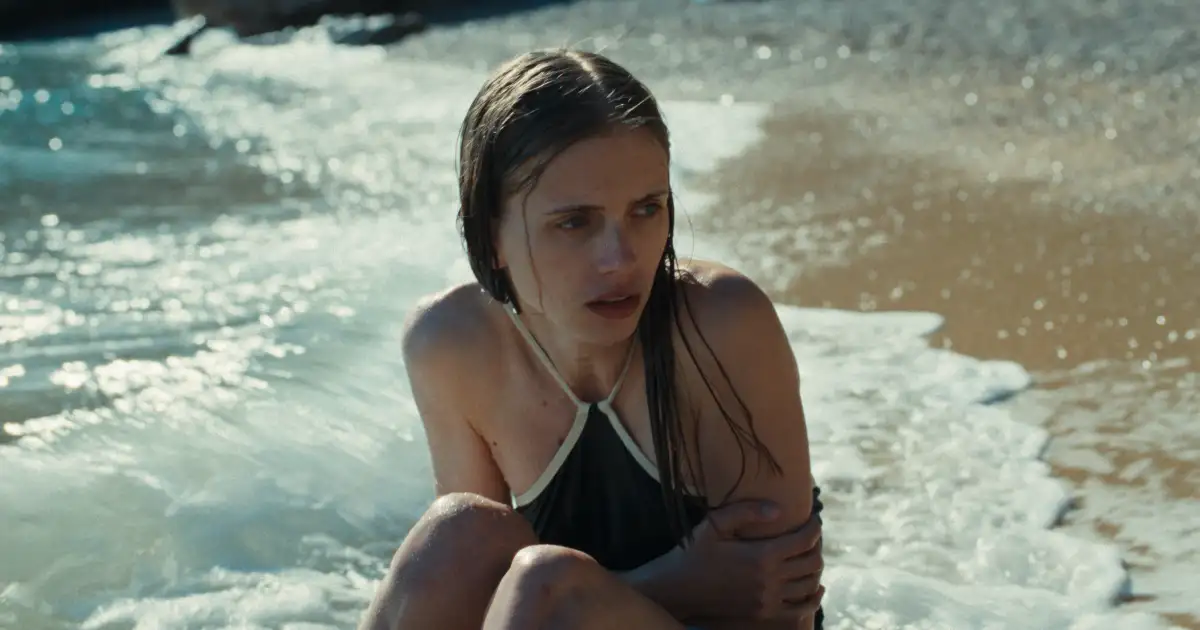Ungrateful Beings
Ungrateful Beings
VERDICT: A holiday homicide triggers a family crisis in Olmo Omerzu's psychological thriller, which is clunky in places but saved by its intriguing premise and strong cast.
A murder sends shockwaves through a sunny Croatian coastal town in Ungrateful Beings, the fifth feature from Slovenia-born, Czech-based writer-director Olmo Omerzu. But the crime itself is only incidental to this offbeat drama, which is much more interested in examining the destructive effect these macabre events have on a dysfunctional family holidaying in the area, who become unwittingly entangled in the case. The result is a compelling quasi-thriller, tonally a little flat in places, but elevated by an intriguing premise and solid acting performances. Partially English-language dialogue should also help open doors for this pan-European co-production following its world premiere in competition at San Sebastian film festival this week.
Omerzu has long been interested in teenagers and fraught family dynamics. His coming-of-age road movie Winter Flies (2018), centred on two adolescent rebels, won multiple prizes before being submitted as the official Czech Oscars contender. His follow-up feature, Bird Atlas (2021), examined dynastic backstage power struggles at a family company. Ungrateful Beings feels like his most ambitious production yet, with multi-country locations and an international cast.
Irish actor Barry Ward plays David, a fortysomething father on holiday with his two children, Klára (Dexter Franc) and Teo (Antonin Chmela), on the rugged Adriatic coast. David has recently separated from his Czech wife Laura (Barbara Bobulova) over vaguely explained conflicts that hang heavily over the trip, partly because the worryingly thin 18-year-old Klára suffers from anorexia, which her parents privately fear was triggered by their deepening marital problems.
In a positive development, Klára’s sullen, self-absorbed, combative mood brightens when she falls for Denis (Timon Sturbel), the bad-boy son of a local fish merchant. Their holiday romance quickly becomes sexual, and she is deeply smitten, even agreeing to eat normal food amounts again. But their budding relationship takes a dark turn when Denis is suddenly arrested as prime suspect in his father’s murder. Spooked by these grim revelations, David cuts the trip short, rushing Klára and Teo back home without warning.
Enforced separation from Denis has a disastrous affect on Klára, who swiftly relapses into her disordered eating habits and needs to be hospitalised. Pining for the young man she now idealises as her soulmate and saviour, the only person on earth who truly understands her, she becomes suicidally despondent when he not respond to her texts and calls. In desperation, David makes the reckless decision to impersonate Denis, buying an overseas SIM card and bombarding Klara with love messages.
This farcical set-up steers Ungrateful Beings into awkward social comedy terrain, especially when the father-daughter messages inevitably take on a cringingly sexual nature. United by a common cause, keeping their daughter form harm, helps draw David and Laura closer together again. But their high-stakes fakery is fraught with risk too, especially if Klára were to discover the truth. When the real Denis finally resurfaces, these tensions become explosive, threatening the fragile balance of this newly restored family harmony. David and Laura must weigh up the costs of accommodating a potential killer for the sake of keeping Klára healthy.
Ungrateful Beings initially teases us with the nerve-jangling visual grammar of crime thrillers and psychological horror movies, but ultimately lands somewhere a little more subtle, denying viewers the cathartic explosion that genre convention demands. Omerzu is more interested here in internal family politics than the external threats that tear then apart.
Just plausible enough to play as drama rather than melodrama, and pleasingly low on predictable twists, Ungrateful Beings is arguably Omerzu’s most mature, substantial work to date. The lack of a final pyrotechnic resolution may leave some viewers feeling short-changed, but the only truly jarring element here is the English-language dialogue, which frequently sounds clunky and flat, as if it has been fed through Google Translate then left in first draft form. Even so, this is an engrossing and handsome effort overall. Worthy of mention is Krystof Melka’s lustrous cinematography, particularly during the sun-drenched Croatian sequences, which include superlative semi-submerged ocean shots with cameras bobbing along the surface of the deep blue Adriatic.
Director: Olmo Omerzu
Screenwriters: Olmo Omerzu, Nebojsa Pop-Tasic, Kasha Jandackova
Cast: Barry Ward, Barbora Bobulova, Dexter Franc , Antonín Chmela, Timon Sturbej
Cinematography: Krystof Melka
Editing: Jaroslaw Kaminski
Music: Monika Omerzu Midriaková
Producer: Jiri Konecny
Production company: Endorfilm (Czech)
World sales: Cercamon (UAE)
Venue: San Sebastian International Film Festival (Competition)
Language: Czech, English, Croatian
110 minutes

